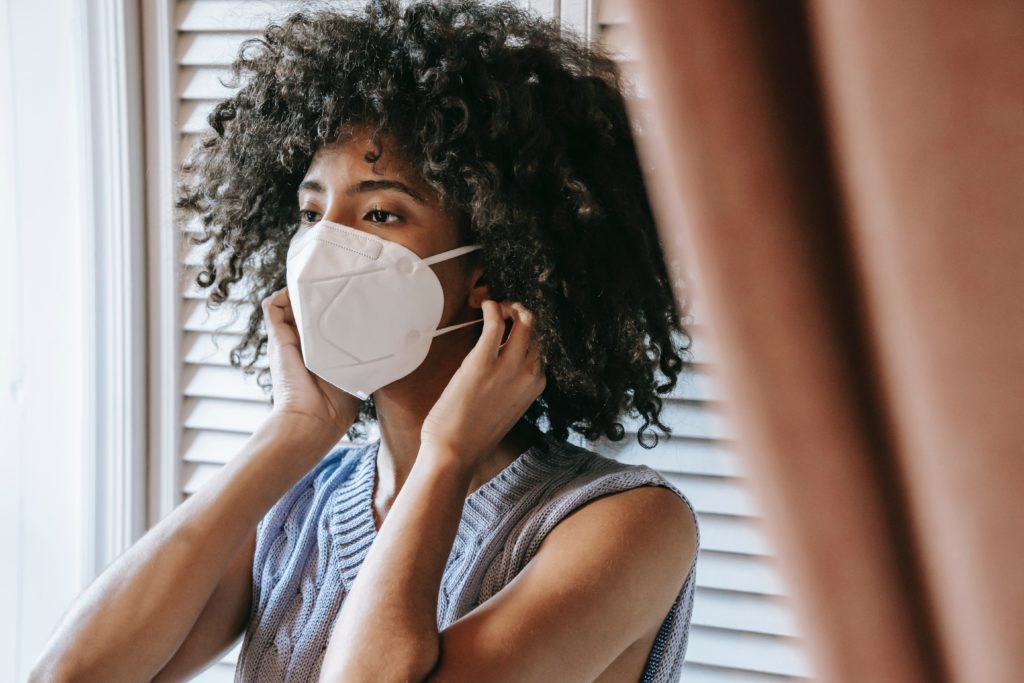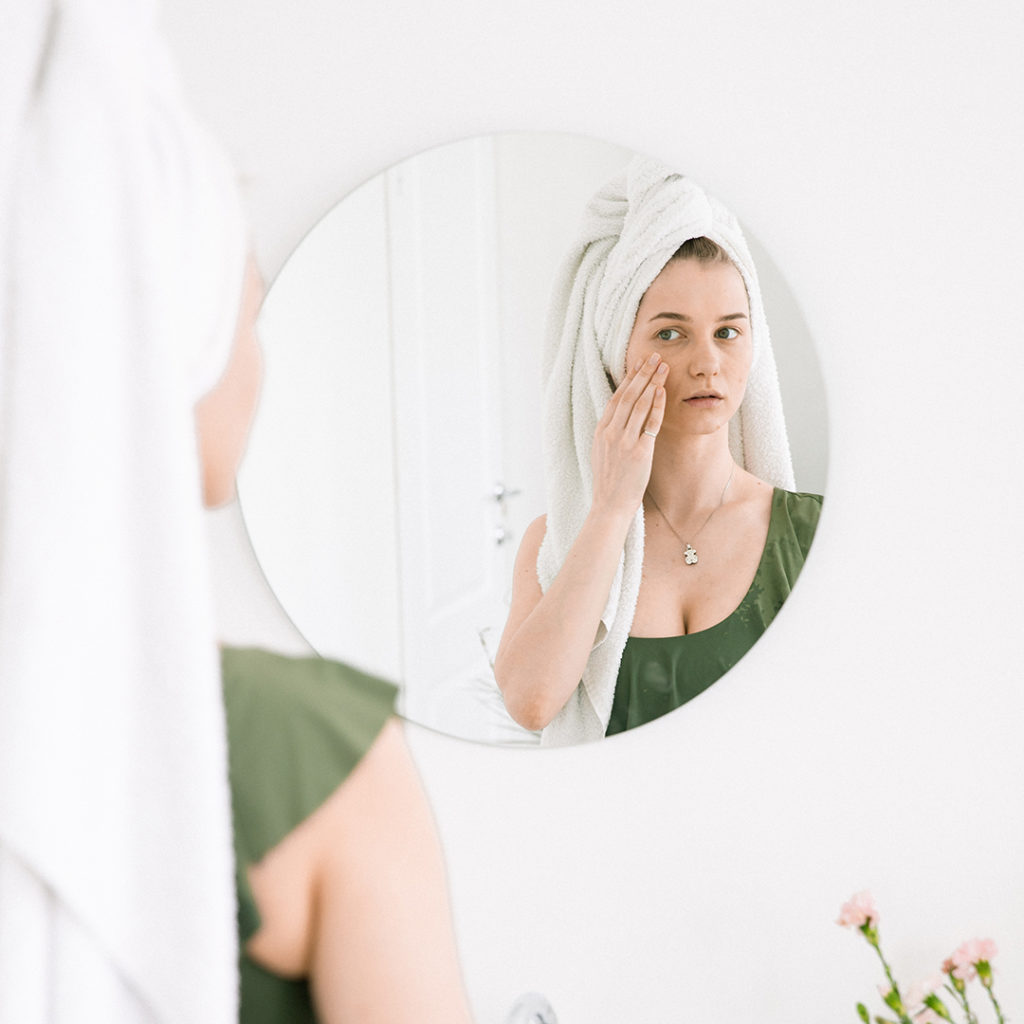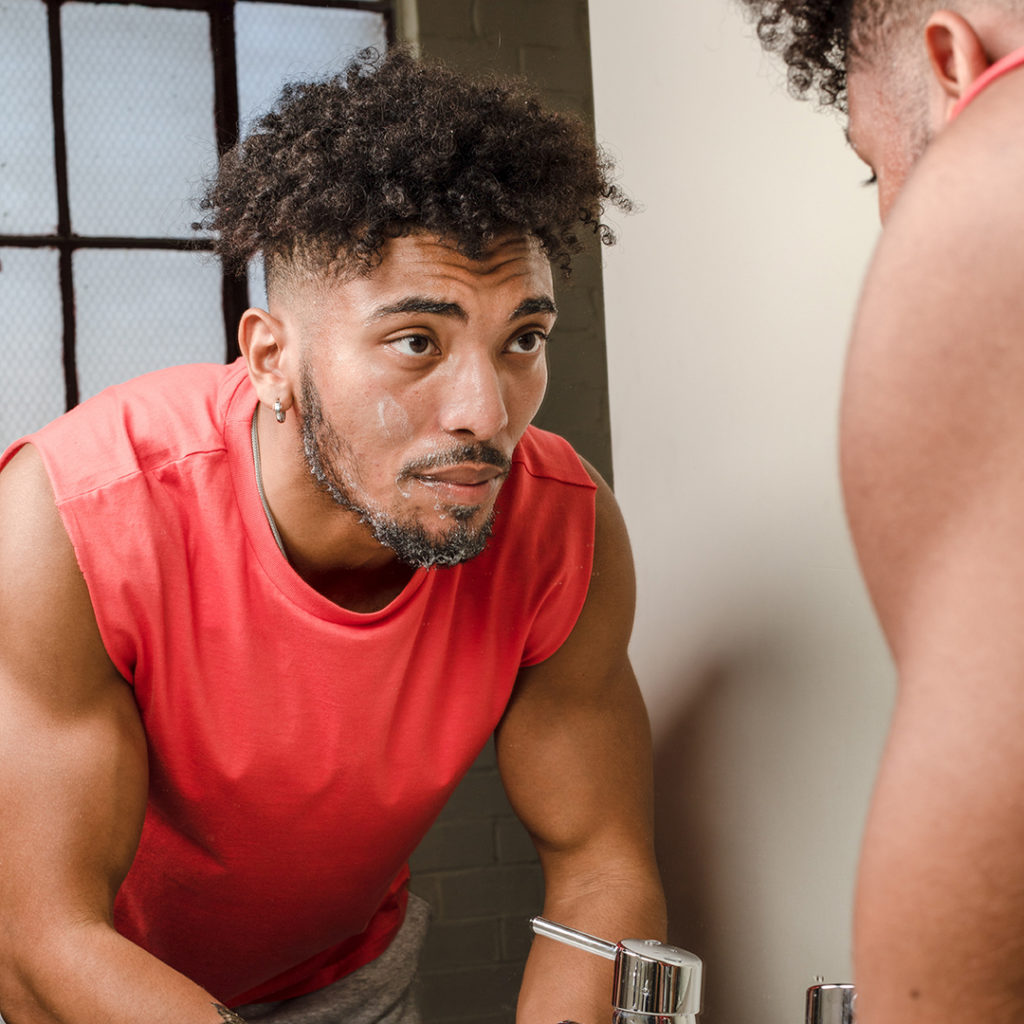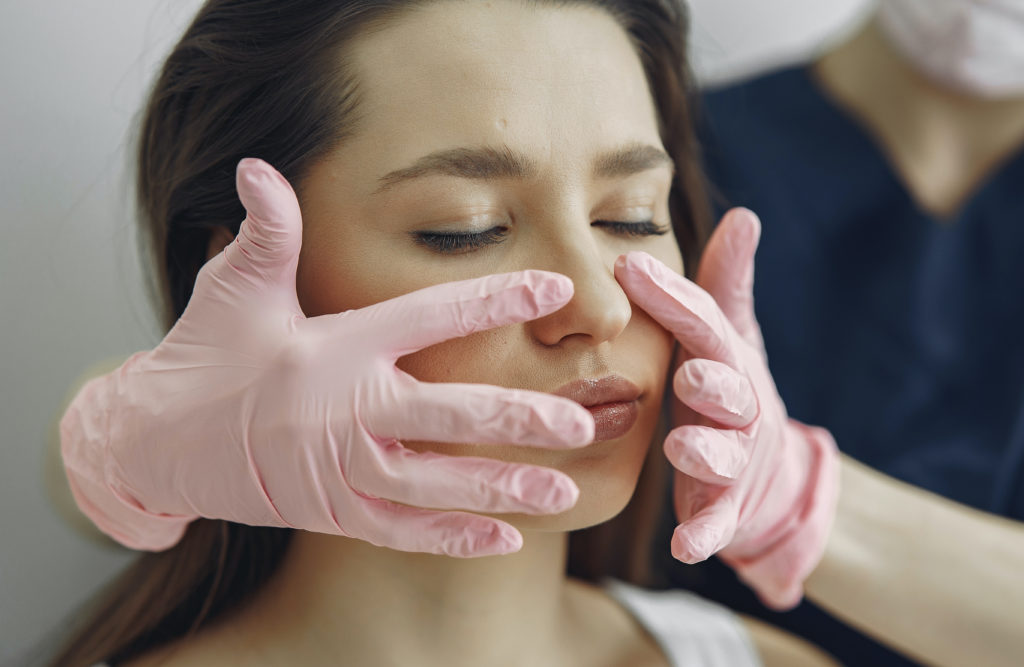While masks are protecting us from spreading the coronavirus, they’re not helping our quest for clear, beautiful skin.
 If a year of wearing masks has taken a toll on your skin, you may be wondering if you will even be able to show your face when the pandemic is over. We got some expert tips for practical ways to manage the annoying breakouts that go along with wearing personal protective equipment.
If a year of wearing masks has taken a toll on your skin, you may be wondering if you will even be able to show your face when the pandemic is over. We got some expert tips for practical ways to manage the annoying breakouts that go along with wearing personal protective equipment.
“Maskne is not a new thing; it has actually been around for ages,” explains Dr. Puja Kathrotiya, a board-certified dermatologist at Midstate Skin Institute’s Jasmine Park office in Ocala. While we’ve heard the word maskne more during the COVID-19 pandemic, she says, it’s just a more specific term for acne mechanica, or breakouts caused by localized pressure, friction, trauma, heat or excessive moisture. And that’s something dermatologists have been treating for a long time.
“In the past, soldiers with head gear, especially those in hot and humid areas, were afflicted by this same condition,” the doctor reveals. “Athletes tend to be prone to this affliction from helmets and chin straps that tend to be worn for prolonged periods of time.”
 So what can we do about it? Kathrotiya offers several solutions:
So what can we do about it? Kathrotiya offers several solutions:
Wear fabric masks when possible.
“Moisture-wicking fabrics and breathable fabrics help keep the skin drier.”
Wear a clean or new mask.
“Fabric masks should be washed often. Masks get buildup of oil, makeup and dead skin cells that can contribute to clogged pores and acne formation.”
Look for skin care products labeled “oil-free” and “non-comedogenic.”
“These products help keep skin clearer.”
Avoid exfoliating, using facial brushes, washcloths or scrubs.
“Use gentle cleansers and hands to wash your face, then pat your skin dry.”
 Simplify skin care.
Simplify skin care.
“Keep the number of skin care products to a minimum. For example: moisturizer and sunscreen followed by a light application of makeup, if any. Added layers of skin care products under the mask can contribute to trapped oil and dirt, leading to clogged pores and breakouts.”
Treat blemishes with over-the-counter spot treatment creams containing benzoyl peroxide.
“That will help fade the redness and shrink pimples. The recommended strength is 2 to 6 percent. Acne masks containing sulfur as the active ingredient also make good overnight spot treatments for relief from pesky blemishes while you sleep.”
For those with darker skin tones, use acne drying lotions with glycolic acid or resorcinol.
“Acne can be accompanied by hyperpigmentation. As the redness fades, the skin turns a darker color. These types of products will help keep the skin tone even while combating acne at the same time.”
Visit a board-certified dermatologist.
If over-the-counter remedies don’t seem to be helping enough, dermatologists have next-level treatments.
 “Prescription-strength topics and oral medicines can help give the extra boost needed for those with moderate to severe maskne or other mask-related skin conditions,” Kathrotiya offers.
“Prescription-strength topics and oral medicines can help give the extra boost needed for those with moderate to severe maskne or other mask-related skin conditions,” Kathrotiya offers.
Like you, we can’t wait to leave masks—and maskne—behind when the pandemic is over. We look forward to seeing your smiling face again!






